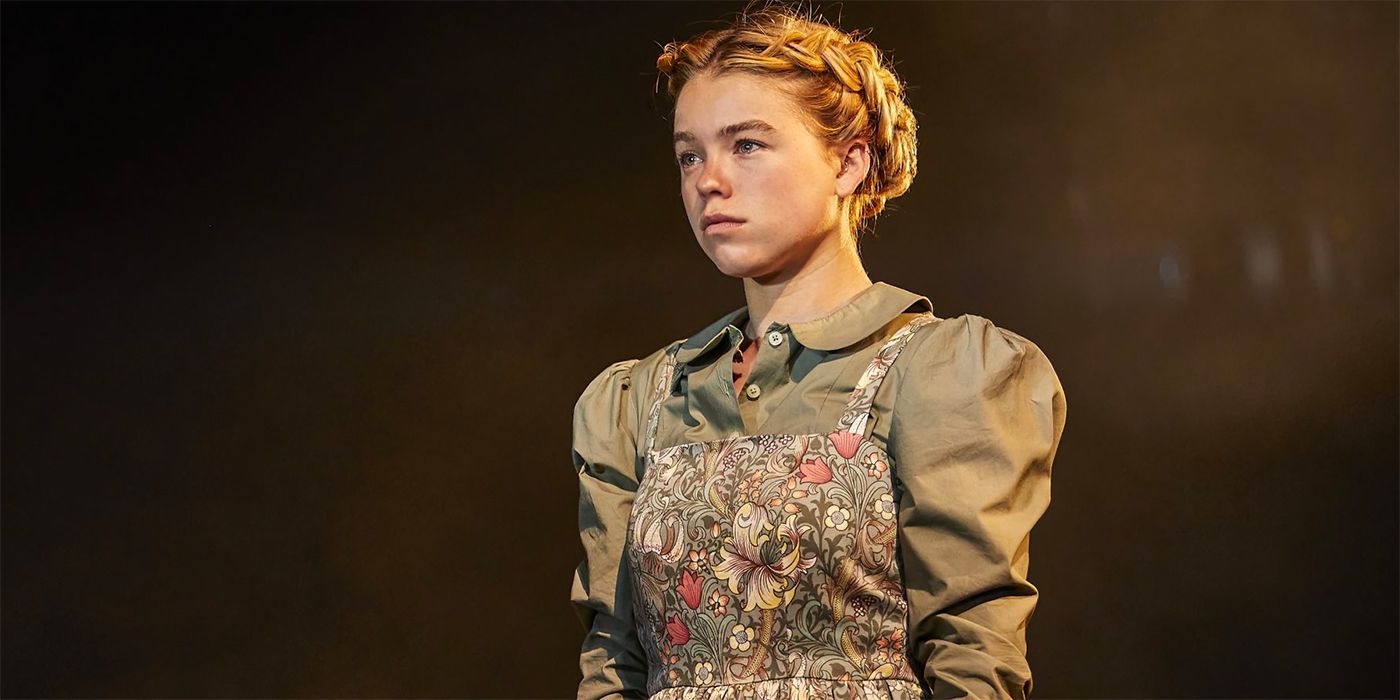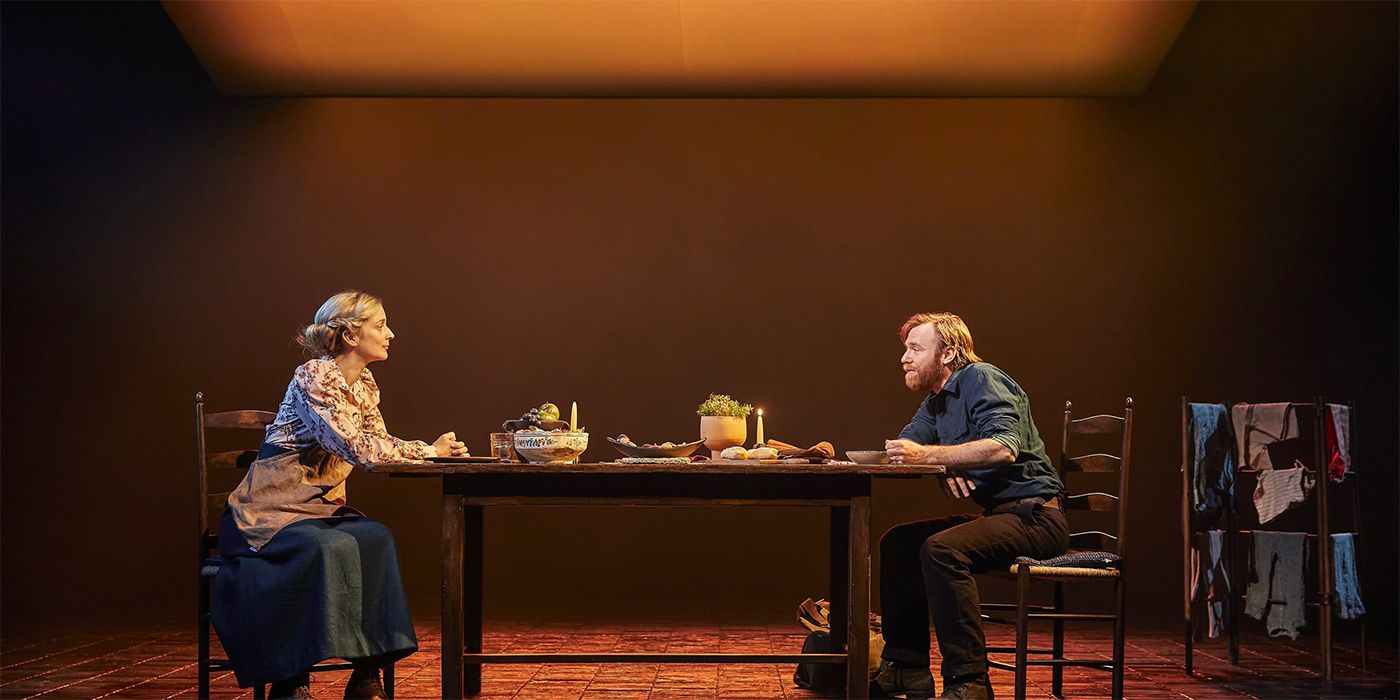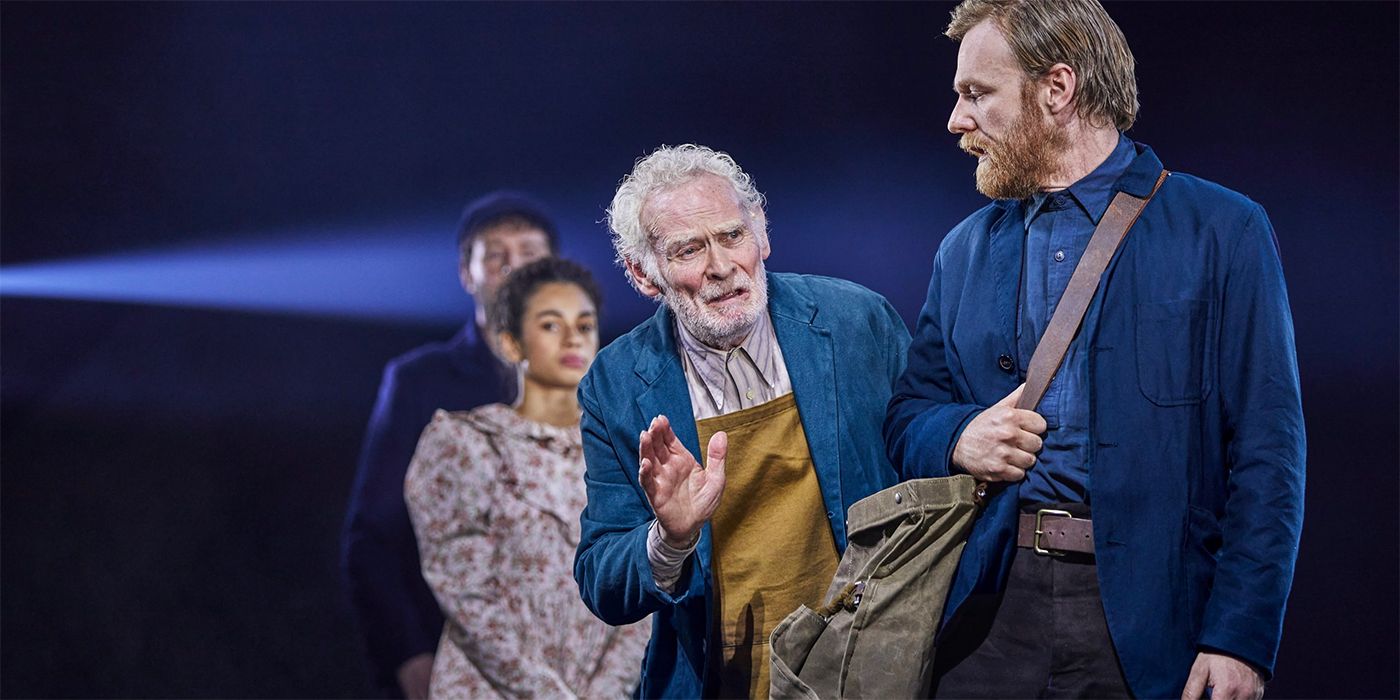On the surface, the story of The Crucible is hardly one that feels connected to our modern day. A story embroiled in fear, paranoia, and mob mentality, Arthur Miller's play follows the events of the Salem Witch Trials. But as Lyndsey Turner depicts her take on Miller's beloved play for modern audiences, you can't help but sense that there might be something that rings familiar with our present day and the America of 1692. Written as an allegory for McCarthyism, the town of Salem devolves into chaos as accusations of witchcraft are thrown around. When a group of girls become the accusers, an entire town's fate rests in their hands.
Milly Alcock's Performance as Abigail Williams Transforms the Character
At the center of this scandal is the oft-maligned Abigail Williams. She is played by West End newcomer Milly Alcock who previously gave a compelling performance in House of the Dragon as the young Rhaenyra Targaryen. In this role, she commands the stage. Alcock fully portrays the nuances of Abigail's character, moving her beyond the fickle and foolish girl she is often reduced to. Offering a softness and juvenile nature to her, without shying away from her more vicious side, Alcock is mesmerizing to watch as she goes from a love-sick teenager to the implacable leader of a band of girls who become the harbingers of doom for their town. For anyone familiar with The Crucible, this teenage girl who engages in an illicit affair with a married man in town is treated as the key antagonist. Turner correctly alters the narrative, making Abigail sympathetic, turning her from a caricature of a spiteful girl into a young woman who has been spurned.
Brian Gleeson and Caitlin Fitzgerald Are the Perfect Cast for John and Goody Proctor
Alcock's electrifying performance does well to remind us that Abigail is a young girl, one who has fallen for the charisma of an older man who does not reciprocate those feelings. That man is John Proctor, played by Brian Gleeson, known for his time on Peaky Blinders as well as the most recent season of The Mandalorian where he played Admiral Hux's father. While Proctor is not without fault, and yes, he should be the adult held responsible for starting a sexual affair with a 16-year-old, Gleeson portrays him as a tortured and proud man. His impassioned speech near the end of the play is worthy of applause as he stands by his convictions, though his stand-out scenes remain with Alcock's Abigail and Elizabeth Proctor's actor Caitlin Fitzgerald.
Gleeson and Alcock's scenes depict the push and pull of the two characters both bound by a sordid secret — one eager to forget the shame and the other desperate to hold on to the ghost of affection — and it creates the core conflict of the play. This then turns John Proctor's wife, Elizabeth Proctor, into Abigail's main obstacle. Played by Fitzgerald, who you might remember from Masters of Sex or Succession where she played Tabitha Hayes, Elizabeth Proctor is neither the bitter wife to John nor is she the cruel mistress to Abigail. She portrays a level-headed woman who ends up caught in the web of lies created by the town's teen girls. A stalwart and honest woman, she is stripped of her misogynist trappings, and the play shies away from pitting the two women against each other.
'The Crucible' Doesn't Hesitate To Pepper in Humor and Levity
On top of those three leads, praise has to be given to Karl Johnson's Giles Corey and Fisayo Akinade's Reverend John Hale. Johnson's performance as Giles offers a surprising amount of levity in the play, his lines often delivering the most laughs in the theater. This only makes it more tragic when he falls victim to the accusations. Similarly, Akinade, who you might recognize from Heartstopper, plays a sincere and honorable holy man. We watch the slow dismantling of his faith in the justice system and his eventual disillusionment by the end of the play. Akinade often feels like the compass trying to guide the characters toward a true north that they refuse to follow, turning Hale into the voice of reason in a town losing all semblance of reason.
'The Crucible' Is a Reflection of Our Modern World Through an Archaic Lens
Turner's direction and Es Devlin's set design make for both a claustrophobic and tumultuous setting. Using modern techniques, The Crucible manages to look and feel modern while preserving the soul of colonial America. The play starts and ends with the curtain of rain that falls from the stage of the Gielgud Theater, instantly setting the mood and plunging us into Salem headfirst. The minimalist sets utilize light and shadow, while the play itself makes use of music and sound. Indeed, the opening scene roars to life with a chorus of churchgoers singing their hymns, setting the proverbial stage for us. At one point, at the height of the mania, Abigail and her band of accusers lead a thrilling and horrifying performance of possession. This chaotic performance is one of the best scenes of the play, giving us a direct look into the total breakdown of the town and how it has been ensnared by paranoia and superstition.
Turner's revival of Miller's play reflects our modern world. It's not hard to draw conclusions and connections to what a modern mob can do to a person's reputation. How many times have we seen the internet itself carry out witch hunts against people, turning lives inside out? While, certainly, it is not a direct comparison, Turner reminds us that this mob mentality has never been far from our minds. People, fueled by selfish intentions, need only the implication of an allegation to tear lives apart while hiding behind their touted morals, fame, or religion.
Rating: A
The Big Picture
- Milly Alcock's portrayal of Abigail Williams is compelling and multifaceted, showing her as more than a simple villain.
- Brian Gleeson's performance as John Proctor effectively showcases his internal struggles and creates a powerful dynamic with Alcock's Abigail.
- This production of The Crucible incorporates humor and levity, particularly through Karl Johnson's portrayal of Giles Corey, adding depth to the play's tragic events.
The Crucible is now playing at the Gielgud Theater until September 2.




Comments
Post a Comment